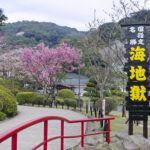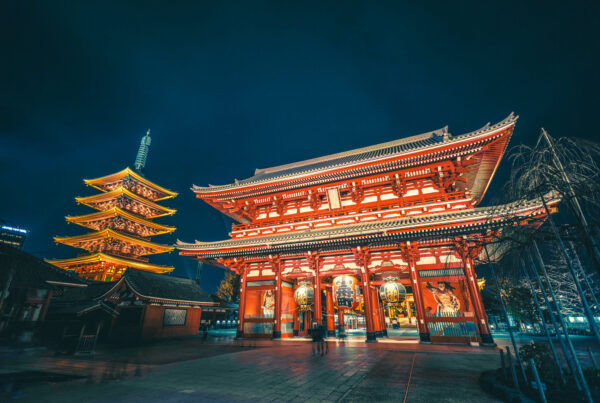Omotenashi: A Way of Life in Japan – Omotenashi (おもてなし) is one of those exotic Japanese cultures that you read about, think you understand, but continued to be amazed by it, again and again, no matter how many times you visit Japan.
Amazed, and mystified.
Many travel guides translate the term as “Japanese hospitality,” but the same guides will also highlight that this translation merely begins to describe omotenashi.
Within Japan, you will frequently see the term on brochures and posters too. Such as when a hotel introduces a new amenity or when a ramen shop is promoting a new menu. Or when a confectionery has launched a new cake made from local specialties.
With such hazy definitions and such a wide array of uses, just what is omotenashi? Is it in truth, no more than a fanciful way to describe superb customer service? No more than the classic sales exhortation that the customer/paying guest is kami-sama i.e. godlike?
I hesitate to give a direct answer. Instead, let me share what I consider to be my most intimate encounters with Japanese-style hospitality.
Through these, I hope you can get an idea of what omotenashi truly is, especially how it goes beyond the tourism or service industries, and how it embodies “care from the heart.”
I’m sure you will also see that the spirit is, in and out, a way of life in Japan. This, by the way, is what makes it so endlessly fascinating. And what keeps me returning to Japan again and again.
The Caring Host
My first proper encounter with omotenashi wasn’t in Japan but at home. As in, in my home country during the late 90s.

Amenities at a Japanese hotel. The pillows even come with convenient carrying cases.
After the end of the school term, our Japanese tutor organized a lunch at her apartment. Expecting it to be no more than a casual get-together, my classmates and I turned up with just a fruit cake. We bought this while on the way to my tutor’s apartment.
We were soon deeply embarrassed. Not only had my tutor prepared a whole table of Japanese dishes, she labeled everything in anticipation of us wanting to learn the names. What’s more, she filled another table with her magazines, books, manga, VCDs, etc. We were free to borrow any of these for entertainment or learning purposes.
Repeat: we were truly embarrassed by our cheap fruit cake. As most Japanese would, we really ought to have brought with us a more presentable temiyage to thank our tutor for her efforts and her thoughtfulness.
Two years later, when I began to visit Japan on my own, I also realized that my tutor did not do what she did out of obligation as a teacher. Be it at hotels large or small, shops old or new, restaurants famous or unknown, owners i.e. hosts take considerable efforts to demonstrate a thoughtful “care” that goes beyond fulfilling standard service roles. A care that stems from the heart.
For example, many Japanese travel hotel chains offer not just choices of shampoo and body wash, they even have different pillows for you to choose from. Because few travelers wash and sleep the same way.
Hotels with coin-operated laundry services will prepare waiting areas. Such areas are usually next to pantries and vending machines. Sometimes, they even come with massage chairs.
At many shops and stores, assistants will wrap your shopping bags with an additional plastic layer, if the weather is wet outside.
The well-known oshibori hot/cold towel in Japanese restaurants is a classic example of thoughtful, hospitable care.
The short of it, it’s care that anticipates all the needs of a guest. The same as what my tutor did when labeling her dishes. Or bringing out her reading materials.
Of course, I cannot deny that for some establishments and individuals, exhibiting such outstanding “care” is purely for commercial/social survival. In a culture where omotenashi is enshrined, not doing so will doom a business overnight. Or earn an individual a dour reputation.
That said, were you to experience such care firsthand, you will get the impression that everything at least originates from a genuine desire for a guest/customer’s well-being. Because if not, how else could Japanese establishments come up with thoughtful touches that make them legendary throughout the world?
How could they provide consistently provide memorable, even unforgettable visits for travelers, throughout the country?
Help That Goes Beyond the Obligatory

In 1998, I had an incredible experience at this remote onsen in Wakayama Prefecture. One that defined Japanese hospitality for me.
During my first winter visit to Japan, I vastly underestimated the importance of checking bus schedules and frequencies when in the countryside. My fooling bus-hopping soon saw me stranded in remote Yunomine Onsen, with the only bus service that can return me to my hotel in Shingu some three hours away.
Worse, the temperature was freezing. The only attraction around was a roadside Jizo Shrine and a tiny bathhouse. I was practically stuck in a one-street village with nothing but icy air on my hands.
Left with no choice, I lumbered into a small sushi bar and ordered a coffee. Before long, an elderly couple came in too and because I had that much time to kill, I swallowed my awkwardness and did my best to start a conversation.
Two hours later, I was back in Shingu. On learning of my plight, the couple treated me to dinner then drove me back to town. They even helped me extend my hotel stay when I told them the delay made me miss my evening train departure. Lastly, to ensure that I’d be fine the next day, they gave me their telephone number. They told me I just needed to ask the hotel staff to call them, should I require help again.
Till today, I wondered whether I met mountain deities that cold day.
Jokes aside, I am aware that this unbelievable encounter is an extreme example as far as Japanese hospitality or selflessness is concerned. (I could also have merely been incredibly lucky) However, the truth is also that I have never once, in over twenty years, encountered rudeness as a visitor when asking for help in Japan.
Some even go to surprising extents to assist. For example, a couple in Kamakura walked fifteen minutes with me to find the shop I was hunting for. They were locals on their way to lunch.
A gentleman in Tokyo painstakingly translated a guide’s narration, when he realized I could barely understand what was being said. A very similar episode then happened in Kyoto ten years later.
Needless to say, what’s most amazing is that most of these folks didn’t at all need to help; they weren’t even tourism staff. As far as “Japanese hospitality,” my conviction is thus, it’s in no way restricted to the service industries. Most Japanese will try to be hospitable to guests if you need them to.
They will also practice hospitality whenever any opportunity arises. And feel genuinely embarrassed, if they can’t.
Respect, and an Unforgettable Experience
To go into origins, omotenashi began as the heart of the Japanese Tea Ceremony.

The elegant Japanese Tea Ceremony. Where omotenashi is said to have originated from.
Chanoyu grandmaster Sen no Rikyu was legendary for the thoughtful way he cared for his guests. The way he ensured every action and even the tearoom itself provided an Ichigo Ichie i.e. “once in a lifetime” experience. Famously, he noted in a poem that all actions, especially the preparation of tea, must come “from the heart.”
Not an adept in any way with the ceremony, I dare not comment beyond saying, the classic ritual also provides the parameters for modern omotenashi. Similar to how there are equal roles for both the host and the guest in Chanoyu, omotenashi does not just mean a service or hospitality staff submitting to every whim and fancy of the guest. The emphasis is always on sincere care from the heart of the host, and with the guest expressing sincere appreciation. Only through such a genuine exchange can a truly “once in a lifetime” experience be created.
On the expression of appreciation, a great example would be the aforementioned Temiyage gift for one’s host. In everyday life, the way Japanese passengers thank a bus driver for a safe journey, before alighting, is another example. One could even say the way the Japanese would say ojama-shimasu (pardon me for bothering you) when entering a host’s home is also another example.
For visitors to Japan like me, this constant exchanging of care and appreciation creates an elegant harmony that is assuring and comforting. Endlessly enchanting, it also makes any encounter memorable, no matter how many times you’ve seen it.
Be sure to follow us on Facebook, Instagram, Twitter, and Pinterest for more fun stuff!

Ced Yong
A devoted solo traveler from Singapore who has loved Japan since young. His first visits to the country were all because of video game and Manga homages. Today, he still visits for the same reasons, in addition to enjoying Japan’s culture, history, and hot springs.






























